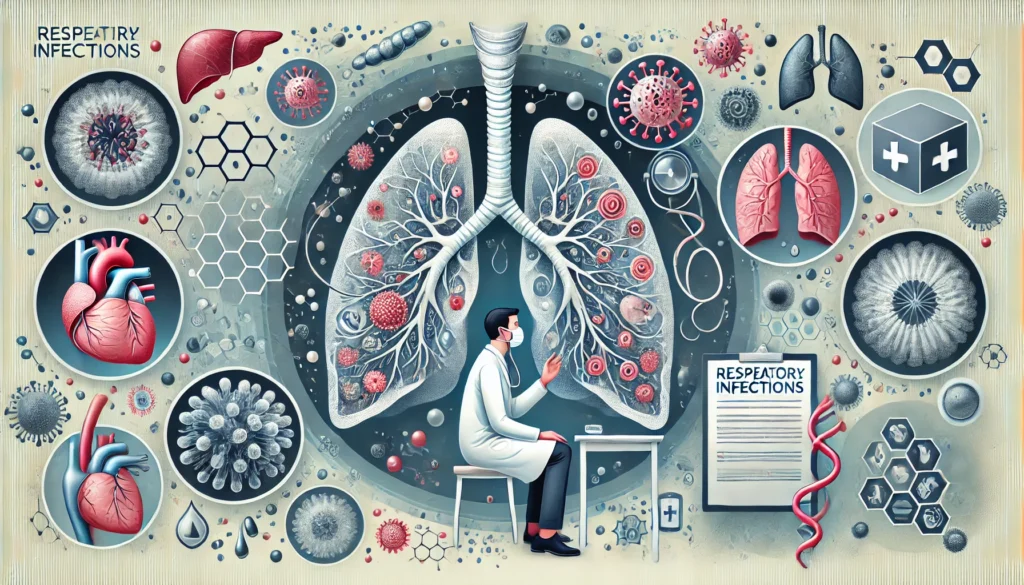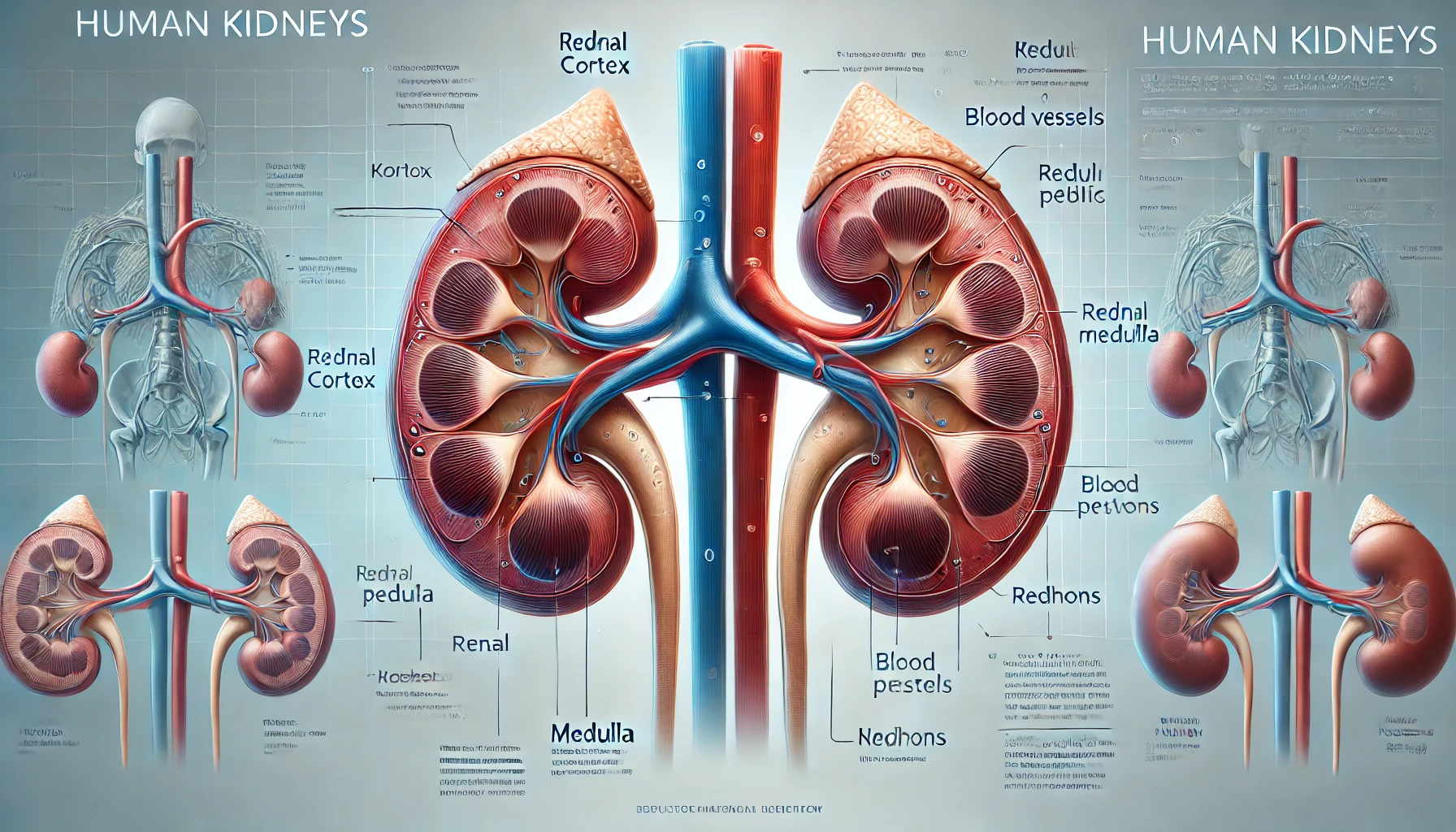Description
Goodpasture’s syndrome is an uncommon but serious autoimmune disease that mostly affects the lungs and kidneys. The condition is named for Ernest Goodpasture, an American pathologist who originally reported it in 1919. Typically, it manifests as fast-progressing glomerulonephritis, which causes acute kidney injury. When the immune system incorrectly perceives the GBM as alien, the kidneys are harmed by an inflammatory reaction. Some patients may also have pulmonary bleeding, which presents as hemoptysis, cough, and respiratory difficulty in conjunction with renal involvement.
You May Also Like:
CREST syndrome | Limited cutaneous systemic sclerosis: Description, Causes, and Treatment Protocol
Goodpasture’s syndrome / anti-GBM / anti-TBM disease: Description, Causes, and Treatment Protocol is an original (MedNewsPedia) article.
Possible Causes
Many factors may play a role in the development of Goodpasture’s syndrome, while its precise causation is not entirely understood. The following list of potential reasons and contributing variables could lead to the development of Goodpasture’s syndrome:
Genetic Predisposition: Goodpasture’s syndrome may run in the family, despite the lack of conclusive information regarding the exact genetic markers linked to the condition. An elevated chance of getting the syndrome may exist in those with a family record of autoimmune disorders.
Environmental Triggers: The onset of Goodpasture’s syndrome may be brought on by exposure to specific environmental variables. A few examples of these triggers are:
Toxins and Chemicals
One possible factor contributing to the autoimmune response is exposure to certain hydrocarbons or environmental pollutants.
Infections
Autoantibodies can be produced as a result of an aberrant immune response brought on by bacterial or viral infections.
Smoking: It has been determined that smoking poses a danger to the onset and aggravation of Goodpasture’s syndrome. It is linked to worse outcomes and more severe disease. Smoking is thought to play a role in the start or development of the autoimmune response, while the precise mechanism by which it affects the disease is not entirely understood.
Molecular Mimicry: The phenomenon known as “molecular mimicry” occurs when a tissue’s structural resemblance to an infectious material causes the immune system of the body to wrongly recognize it as foreign. As a result of mistaking the basement membrane of the glomerular cells for an alien invader, the immune system might mistakenly attack it in cases of Goodpasture’s syndrome.
Autoimmune Response: At its core, Goodpasture’s syndrome is an autoimmune disease, meaning that the body’s tissues are attacked by the immune system going into dysfunction. The kidneys and lungs’ basement membranes contain collagen, and the immune system in this disease makes antibodies against that collagen.

Exacerbating and Mitigating Factors
The impact of Goodpasture’s syndrome can be affected by several variables. Such factors consist of the following:
The exacerbating factors include:
Smoking: It is commonly known that smoking exacerbates Goodpasture’s disease. It’s linked to worse results and a higher chance of having the syndrome, in addition to a more severe illness. Smoking may have a role in the start or development of the autoimmune reaction.
Respiratory Infections: Goodpasture’s syndrome may be brought on by or made worse by bacterial or viral respiratory illnesses. Increased autoimmune responses can result from immune responses triggered by infections that interact with the basement membranes.
Genetic Predisposition: Although genetics might influence a person’s susceptibility, specific genes may make the disease more aggressive.
Environmental Toxins: The symptoms of Goodpasture’s syndrome may be brought on by exposure to certain hydrocarbons or environmental pollutants. Exposure to these chemicals may raise the chance of having an autoimmune response or making it worse.
Treatment and Diagnostic Delays: Treatment for Goodpasture’s syndrome must be started as soon as possible after diagnosis. More serious renal and lung damage may result from delays in either. Better results depend on early detection.
The mitigating factors include:
Smoking Cessation: An essential first step in treating Goodpasture’s illness is giving up smoking. Giving up smoking can help the disease grow more slowly and increase the efficacy of treatment.
Patient Education: Encouraging individuals to follow their doctor’s orders, make lifestyle changes, and receive routine follow-up care gives them the power to take an active role in their health management.
Supportive Care: Improved overall results can be attained by using supportive care strategies to manage symptoms and consequences, such as fluid overload and hypertension.

Consistent Observation and Investigation: Healthcare providers can evaluate the effectiveness of treatment and make needed modifications by routinely monitoring antibody levels and kidney function. For continued management, follow-up appointments must be scheduled consistently.
Immunosuppressive Medications: Using immunosuppressive drugs, like rituximab, cyclophosphamide, and corticosteroids, can reduce the autoimmune reaction in the lungs and kidneys by regulating the immune system and reducing the generation of autoantibodies.
Plasmapheresis: A treatment process called plasmapheresis is used to eliminate unwanted antibodies from the bloodstream. It may lessen the amount of autoantibodies in the blood, lessening the intensity of the autoimmune reaction.
Prevention of Environmental Triggers: The chance of aggravation or the onset of Goodpasture’s syndrome can be decreased by limiting exposure to possible environmental triggers, including specific chemicals such as methane and propane.
Early Detection and Management: To decrease the severity of Goodpasture’s syndrome, prompt diagnosis and treatment are necessary. Timely intervention can prevent major organ damage and improve overall outcomes.

Standard Treatment Protocol
Suppressing the autoimmune reaction and reducing organ damage are the main objectives of treatment for Goodpasture’s syndrome. Immunosuppressive drugs and plasmapheresis are commonly used in standard therapy regimens. The following are part of the typical Goodpasture’s syndrome treatment regimen:
Immunosuppressive Medications: These are as follows:
Corticosteroids (e.g., Prednisone)
High-dose corticosteroids are often the first line of treatment to control inflammation and suppress the immune response attacking the glomerular basement membrane (GBM) and, if applicable, the lungs.
Cyclophosphamide
The common use of this immunosuppressive medication is to prevent the formation of autoantibodies. It functions by reducing the function of immune cells that contribute to the autoimmune reaction.
Rituximab
To lower the production of antibodies, rituximab, a kind of monoclonal antibody that selectively targets B cells, is used. By doing so, the immune system may be modulated and the GBM attack may be decreased.
Plasmapheresis: The process of plasmapheresis includes removing the dangerous antibodies-containing plasma from the blood. After that, donor or alternative plasma is used in its place. This process can be very helpful in controlling the severe stages of Goodpasture’s syndrome by lowering the levels of autoantibodies in the blood.
Supportive Care: It is crucial to manage symptoms and side effects, such as fluid excess and hypertension. Dialysis could be necessary in severe cases of renal failure until kidney function returns to normal.
Follow-up Monitoring: It is of the utmost importance to regularly check antibody levels and kidney function to evaluate the effectiveness of the treatment and make any necessary modifications. If there is lung involvement, pulmonary function tests, imaging examinations, and laboratory testing are part of the monitoring.
Treatment Options
Complementary methods that are not regarded as primary treatments but may provide extra assistance in controlling symptoms, enhancing general health, and maybe affecting the immune response are available as adjunctive approaches for Goodpasture’s syndrome. These alternatives for adjunctive therapy include the following:
Nutritional Supplements: These are as follows:
Antioxidants
Vitamins C and E, two antioxidant-rich supplements, may help prevent the oxidative stress linked to inflammation. These might be viewed as a component of a thorough strategy to promote general health during treatment.
Vitamin D
For the immune system to be properly regulated, vitamin D levels must be adequate. Those who are deficient in vitamin D may benefit most from supplements, which can also help enhance immunological function in general.
Omega-3 Fatty Acids
Supplements containing omega-3 fatty acid-rich fish oil offer anti-inflammatory qualities. They might aid in regulating immune system function and lowering inflammation, but they are not a replacement for conventional care.
Probiotics
Probiotics improve gut health and might have an impact on immune system performance. They help maintain a balanced gut microbiota and may even regulate the immune system.
Natural and Herbal Supplements: These comprise the following:
Green Tea
Polyphenol-rich green tea has been researched for possible immune-modulating properties. Adding green tea to one’s diet or thinking about taking green tea supplements could help manage autoimmune diseases even more.
Turmeric (Curcumin)
The molecule that makes up turmeric, curcumin, has been shown to have antioxidant and anti-inflammatory qualities. Curcumin may help modify the immunological response, although additional research is needed to confirm this.

Quercetin
The anti-inflammatory compound quercetin is present in a wide variety of fruits and vegetables. While its significance in the treatment of Goodpasture’s syndrome is unclear, it might help with immunological control.
However, when thinking about adjunct therapy, people with Goodpasture’s condition must speak with their medical team. Natural therapies and dietary supplements might not be appropriate for everyone or they might interfere with prescription drugs. The mainstay of controlling Goodpasture’s syndrome is still the conventional treatment regimen that medical experts prescribe; any other therapy ought to be coordinated and reviewed with the treating doctors. To assess progress and modify the treatment plan as necessary, it is imperative to schedule regular follow-up consultations and maintain communication with healthcare specialists.
Conclusion
Goodpasture’s syndrome, also known as anti-GBM disease, is a rare but severe autoimmune condition that primarily targets the kidneys and lungs. Prompt recognition and treatment are critical to preventing irreversible organ damage and improving patient outcomes. The disease stems from an abnormal autoimmune response against the glomerular and alveolar basement membranes, influenced by genetic predisposition, environmental triggers, and immune dysfunction.
The standard treatment protocol, which includes immunosuppressive therapies, plasmapheresis, and supportive care, remains the cornerstone of management. Early intervention with corticosteroids, cyclophosphamide, or rituximab, combined with regular monitoring, can significantly control the disease’s progression. Additionally, lifestyle changes, such as smoking cessation and reducing environmental exposures, can help mitigate the disease’s severity.
Adjunct therapies, including antioxidants, omega-3 fatty acids, and natural anti-inflammatory supplements like turmeric and green tea, may complement conventional treatments to support overall health. However, these should always be discussed with healthcare providers to ensure safety and avoid interactions with prescribed medications.

Additional resources for further reference
https://www.ncbi.nlm.nih.gov/books/NBK459291
https://journals.lww.com/cjasn/fulltext/2017/07000/anti_glomerular_basement_membrane_disease.18.aspx
https://www.frontiersin.org/articles/10.3389/fimmu.2020.02035/full
https://bmcnephrol.biomedcentral.com/articles/10.1186/s12882-019-1227-z
Important Note: The information contained in this article is for general informational purposes only, and should not be construed as health or medical advice, nor is it intended to diagnose, prevent, treat, or cure any disease or health condition. Before embarking on any diet, fitness regimen, or program of nutritional supplementation, it is advisable to consult your healthcare professional in order to determine its safety and probable efficacy in terms of your individual state of health.
Regarding Nutritional Supplements Or Other Non-Prescription Health Products: If any nutritional supplements or other non-prescription health products are mentioned in the foregoing article, any claims or statements made about them have not been evaluated by the U.S. Food and Drug Administration, and such nutritional supplements or other health products are not intended to diagnose, treat, cure, or prevent any disease.


